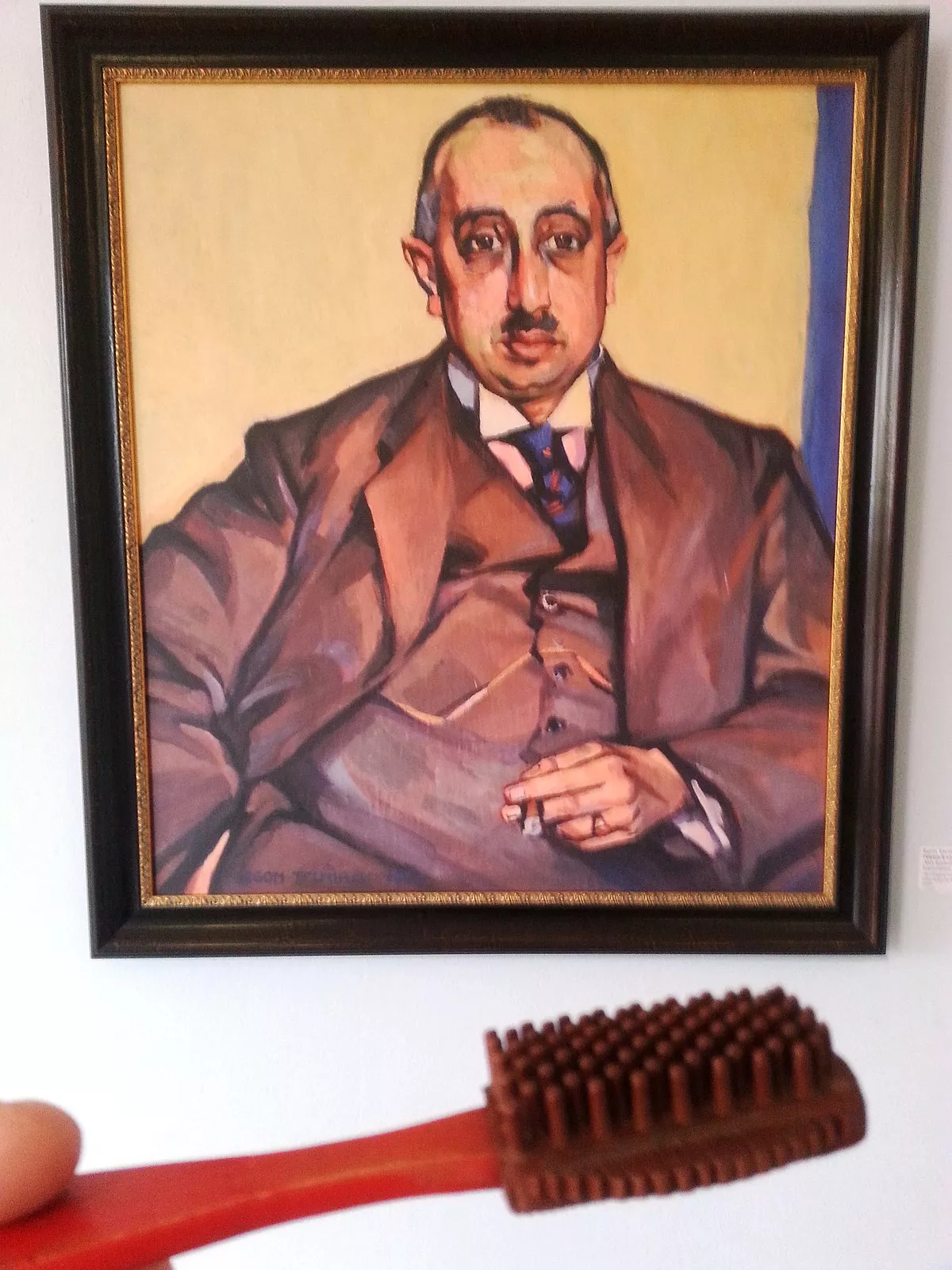 1.
1. Max Samuel was a German businessman and self-made man, founder and managing-director of the EMSA-Werke, chair of the Jewish congregation in Rostock and head deputy of the Israelite Upper Council of Mecklenburg-Schwerin.

 1.
1. Max Samuel was a German businessman and self-made man, founder and managing-director of the EMSA-Werke, chair of the Jewish congregation in Rostock and head deputy of the Israelite Upper Council of Mecklenburg-Schwerin.
Max Samuel was born into a poor family as penultimate child of seven siblings.
Max Samuel's parents were Jacob Itzig and Rosalie Schrubski.
When Max was five years old the Itzig family altered its surname to Samuel, as on 2 June 1888 the Royal Bromberg Regional Government granted the family's request.
Max Samuel left primary education on Easter 1897 at the age of 14 and went to live and work with his elder brother James Samuel in Gustrow where the latter had opened a shoe business.
In Gustrow Max Samuel was educated in the trades of shoemaking and business and then worked as a travelling salesman.
Max Samuel was very ambitious and tried to develop many inventions using the early opportunity provided by his brother's shoemaking workshop.
For example, in 1907 he invented a brush for maintaining suede shoes which was patented in Germany in 1926 and in the United States in 1931, as Max Samuel's business was export-oriented.
Max Samuel was very compassionate and his sympathy could be quickly excited.
In February 1923 Max Samuel succeeded Siegmund Bernhard as chair of Rostock's Jewish congregation which was the largest in the then two Mecklenburgs.
Max Samuel wanted his children to be extensively educated, as he had left school at the age of 14 and did not want his children to experience that.
Max Samuel often had visitors in his home and enjoyed socialising.
Max Samuel was societally engaged via membership in the association of Rostock's University and the fraternity of businesspeople.
In 1932 Max Samuel employed as an unskilled office worker Richard's son Hans [John Bernard] Siegmann, who since 1923 had been unproductive and something like a perpetual student.
Max Samuel advised hundreds of people seeking consultation and helped them acquire foreign currencies or immigration papers to refuge countries.
Max Samuel thus fell under increasing financial duress even though export profits were rising.
Max Samuel reacted by running the EMSA-Werke on deteriorating machinery which he saw no point in replacing in view of the difficulties imposed by the Nazi government, and the factory building was decaying.
Max Samuel concluded from these visits to the congregations that their financial situations, like that of the ILM, were terrible and continuously deteriorating.
Max Samuel further pleaded to the general assembly to vote for the ILM to apply for accession to the Prussian State Association of Jewish Congregations, hoping for monetary support from the bigger and financially stronger Prussian umbrella body.
In November 1935, the upper council under Max Samuel fulfilled a request from Rubensohn by sending Torah scrolls from the dissolved Teterow congregation to Pardes Hanna for a new congregation there.
Max Samuel said he would think it over and left Germany immediately, staying in various countries as long as visitor's visas would allow him until Herbert obtained a British entry permit for him.
In early summer 1937 Max Samuel travelled to Amsterdam, where he met his son Herbert who persuaded him not to return to Germany.
Max Samuel's EMSA-Werke were subsequently seized in 1939 and 'Aryanised'.
Max Samuel was buried in the Jewish section of the Blackburn Old Cemetery, now, simply Blackburn Cemetery.
Max Samuel's father was a pedlar of everyday items who travelled between villages with a horse-drawn cart.
Max Samuel had five brothers and one sister, and their surname at birth was Itzig, but the family changed their name to Samuel when he was five years old.
James Max Samuel was active as the treasurer in Gustrow's Jewish congregation and worked with his partner Paul Eggert, who took control of the factory after James' death.
Max and his siblings' brother Feo Samuel survived in the French Foreign Legion and lived as a pensioner in Strasbourg in Alsace.
The brother Wilhelm 'William' Max Samuel, who had lived with his first wife Paula Dreyfus, their three sons, and his widowed mother Rosalie in Cologne, later escaped with his sons to New York, where he remarried in 1946.
Berta's and Max Samuel's son Herbert and daughter Kate were born in Gustrow.
The 'Arianisers' of EMSA shamelessly sent the tax bills to England, hoping Max Samuel would pay them.
Herbert Max Samuel decided to donate the villa in an effort towards reconciliation between Jews and others, as he explained to the attending Schroder and Prof.
In October 1991 Herbert Samuel informed the staff of the Max-Samuel-Haus that his brother-in-law Herman Geo.